Fuelling post 40: use these six tips to tweak your cycling nutrition for your age
Your body changes over time, and so do your nutritional needs - but it’s easy to adapt and stay strong, here's how...
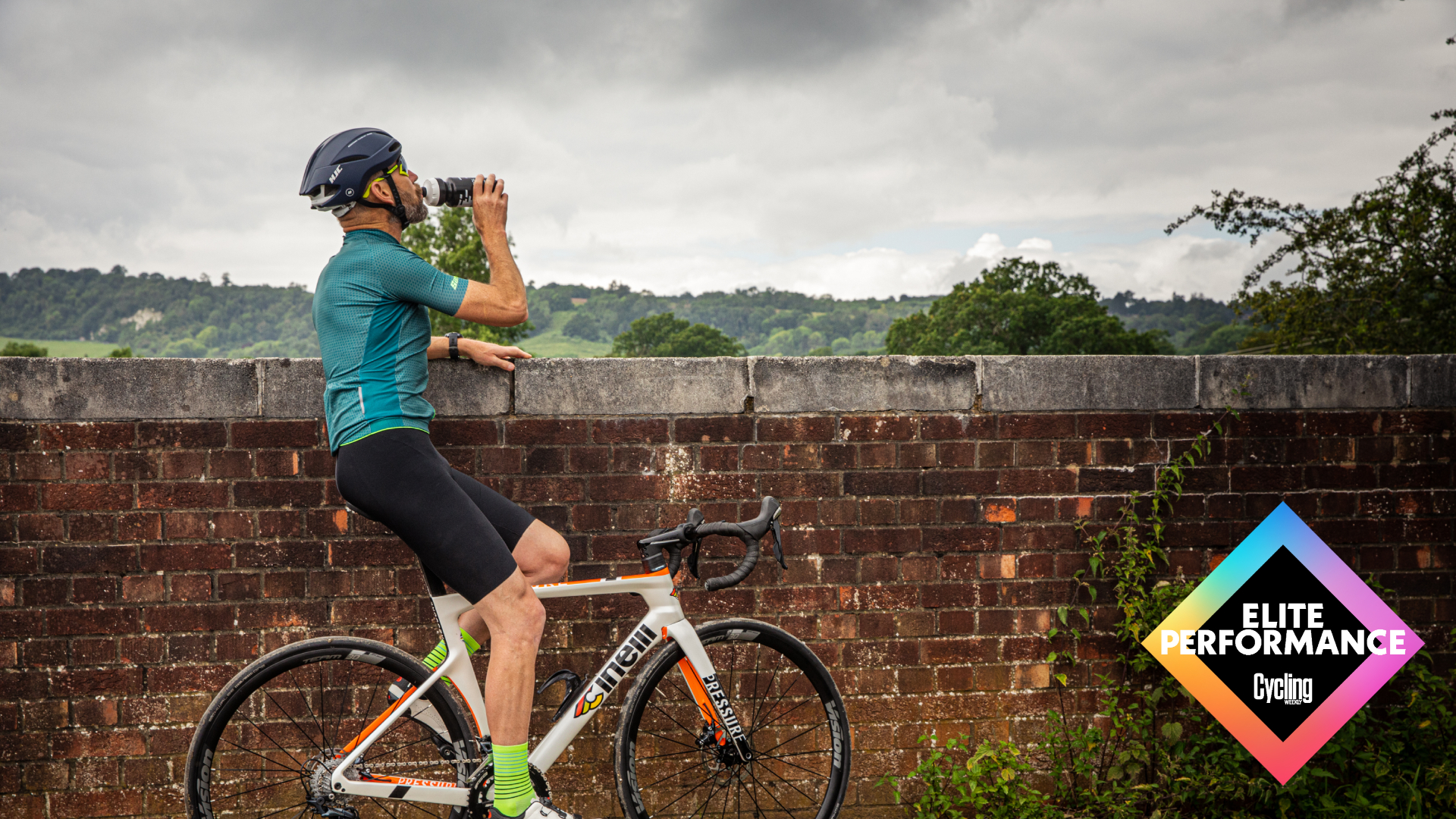
Midlife tends to be the busiest and most demanding period of our lives. For many of us, work demands are high, we have children who need our attention and support, and (especially now with lockdown restrictions lifting) our social calendars are busy – the days are long. We’re not yet old but nor do we have the boundless energy of youth. We feel tired more often, it takes longer to recover after cycling, and we seem to gain weight more easily, especially around the middle. Is this simply the ‘new norm’ we have to accept now we’re on ‘the wrong side’ of 40? Or can we carry on chasing lifetime best performance while maintaining optimum health?
The good news is, most of the challenges of midlife have less to do with our age, far more to do with our changed lifestyles and bad habits that have crept in over the years. Maintaining cycling performance and holding off the effects of ageing can be helped enormously by eating well and looking after your body while making a few allowances for the fact you’re not as young and sprightly as you once were. As a performance nutritionist who has been working with clients at all levels of sport over the past 20 years, I have compiled six simple cycling nutrition rules to help you stay fit as you age, cycling into your 40s, 50s and beyond.
1. Hit your daily protein target
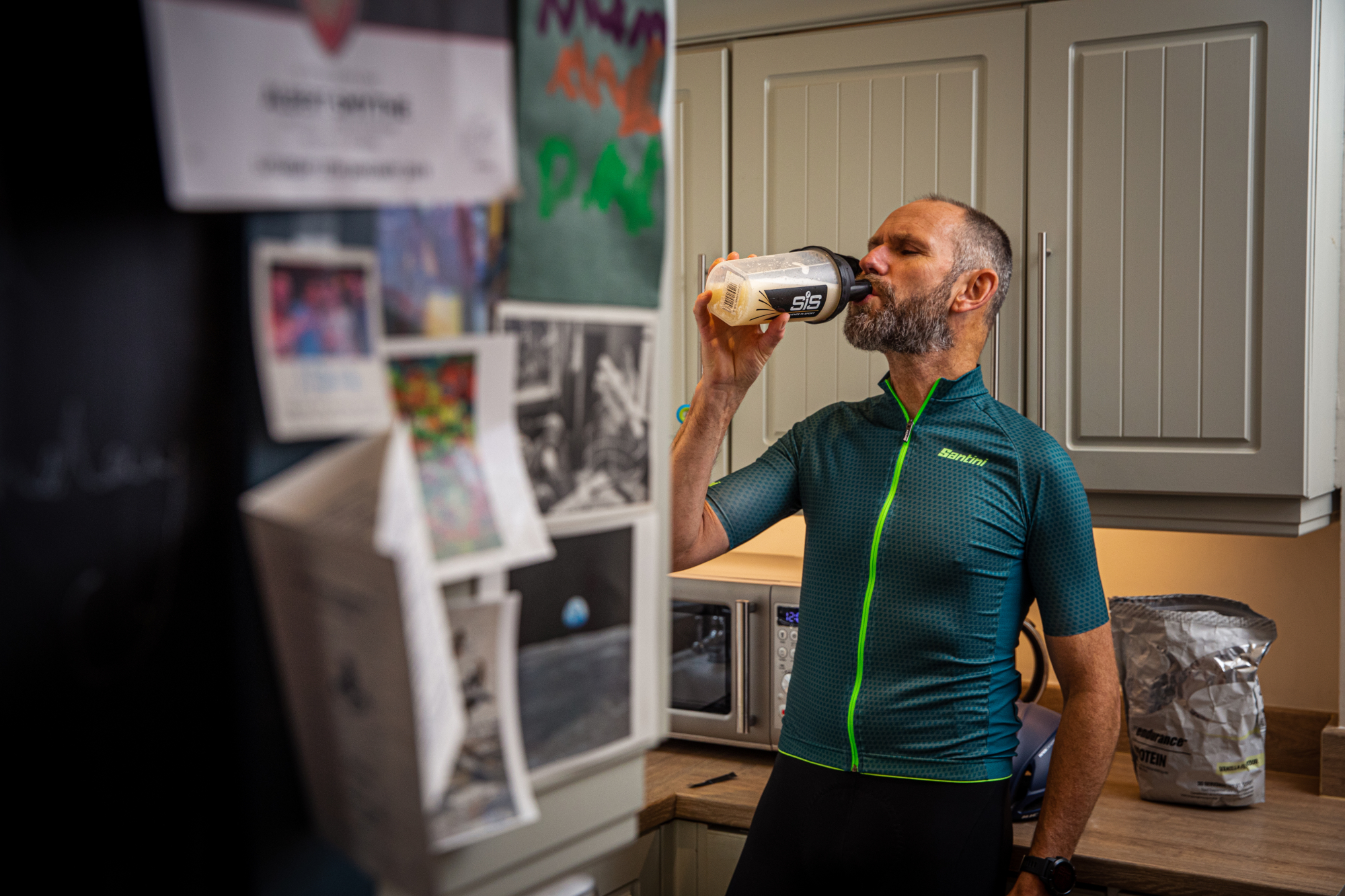
Getting enough protein as a cyclist is essential as, after all, proteins are the building blocks of life. They build everything: red blood cells that provide oxygen to your cells, hormones that support energy levels and satiety, immune cells that fight off bacteria, neurotransmitters that influence emotions and thoughts, and muscle to support movement and longevity. If you’re the house, proteins are the bricks. The busier, more stressed and more active you are, the more bricks your body needs to support health.
Despite the renewed interest in protein over recent years, there is still a lot of noise and misconceptions floating around about how protein impacts longevity. The recent buzz around the benefits of fasting and restrictive diets for longevity have ignited a new trend towards reducing protein intake in midlife. While research on longevity models in animals is interesting, taken too literally it can lead to poor training and recovery (and ironically, a shorter life). The data from human studies is far more robust and will set you up for the best possible health and performance as you age.
Loss of muscle mass as you age, referred to as sarcopenia, is a serious concern associated with worsening health and shorter lifespan. The work of Dr Theo Ispoglou from Leeds Beckett University has established that 1.2g of protein per kilo of body weight per day appears to be the appropriate minimum intake to support healthy ageing. This is 150 per cent higher than the current RDA for protein of 0.8g/kg/day. If you’re trying to achieve a performance goal, consider ramping up your intake to 1.6g/kg/day to benefit your recovery and performance. Divide the intake over the course of the day and aim to hit at least 20g of protein per meal, such as 200g of plain yogurt (or soya alternative for vegans), three eggs, or a portion of meat the size of your fist.
2. Stick to 4/7 on evening snacking
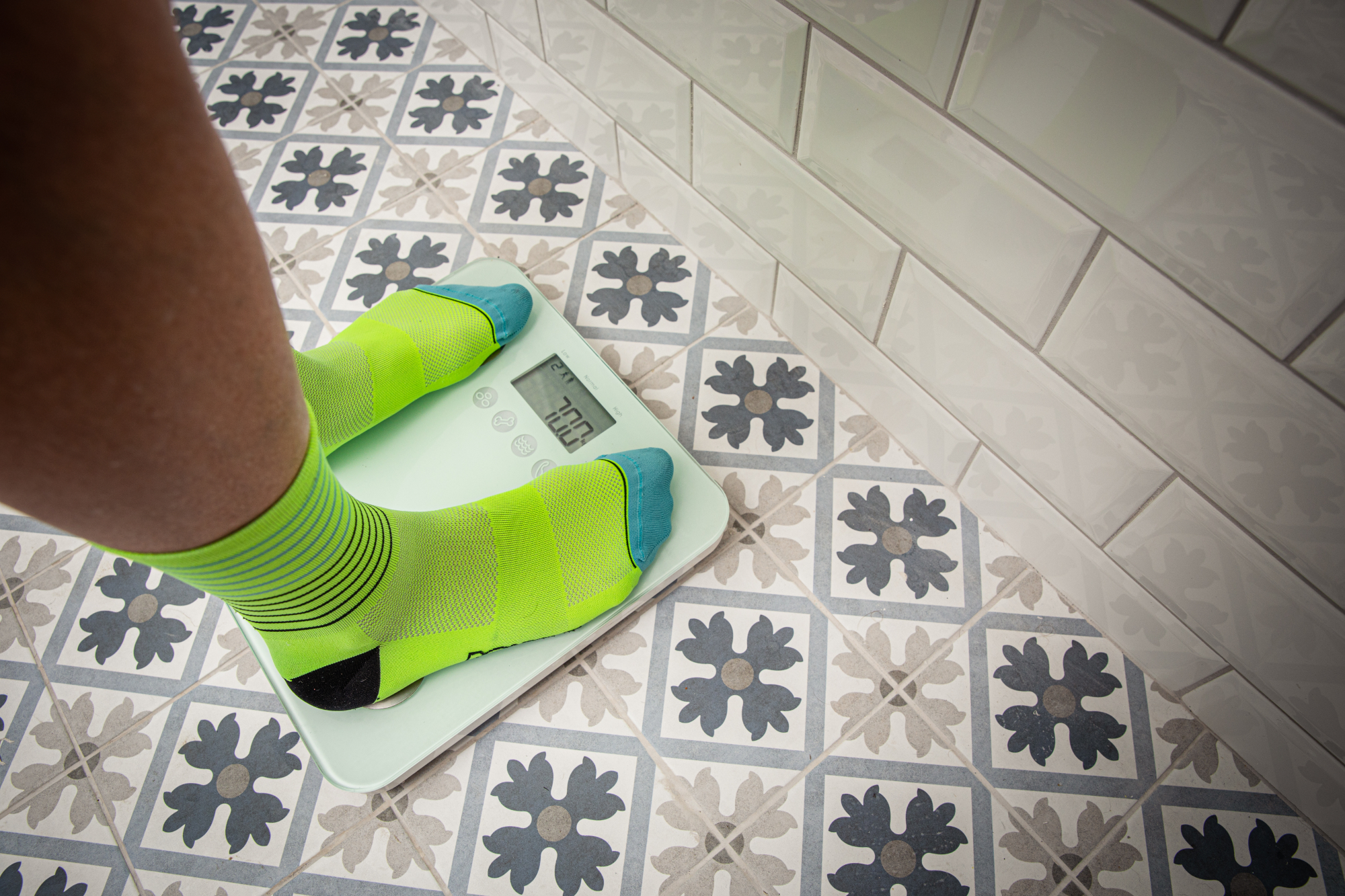
While it’s true your resting metabolic rate (AKA metabolism) does start to decline in midlife, this doesn’t tell the whole story. High stress exerts a tremendous toll on your nervous system, reducing metabolism – and in midlife, there is no shortage of stress. The increased demands from work deadlines, commitments at home, and financial stress are intense and can lead to bad habits, including poorer nutrition choices. Between their late-20s and mid-50s, most people add between nine and 12kg to their frame. Interestingly, the weight tends to be added gradually over time, a kilo or two per year.
Amid the chaos of midlife, it’s easy for bad habits to become the norm. Alarmingly, over 40 per cent of all the calories people consume today are eaten (and drunk) after 6pm. This surge in late eating is a major roadblock to a slimmer waistline, deeper sleep and recovery. After a busy and stressful day at work, you may be tempted to have a glass of wine, beer or sweet snack to decompress in front of the TV later in the evening.
The latest race content, interviews, features, reviews and expert buying guides, direct to your inbox!
Unfortunately, all that drinking and snacking before bed ramps up energy intake (calories) at the end of day when you’re least active and don’t really need the extra – a key reason why you may be struggling with weight gain or poor recovery in midlife.
How can you start to stem the tide? The solution is simple, though not easy. Try cutting out late night snacking four or five nights out of seven. You’ll be amazed at how much progress you can make, even without cancelling your weekend indulgences.
3. Fuel for the work required
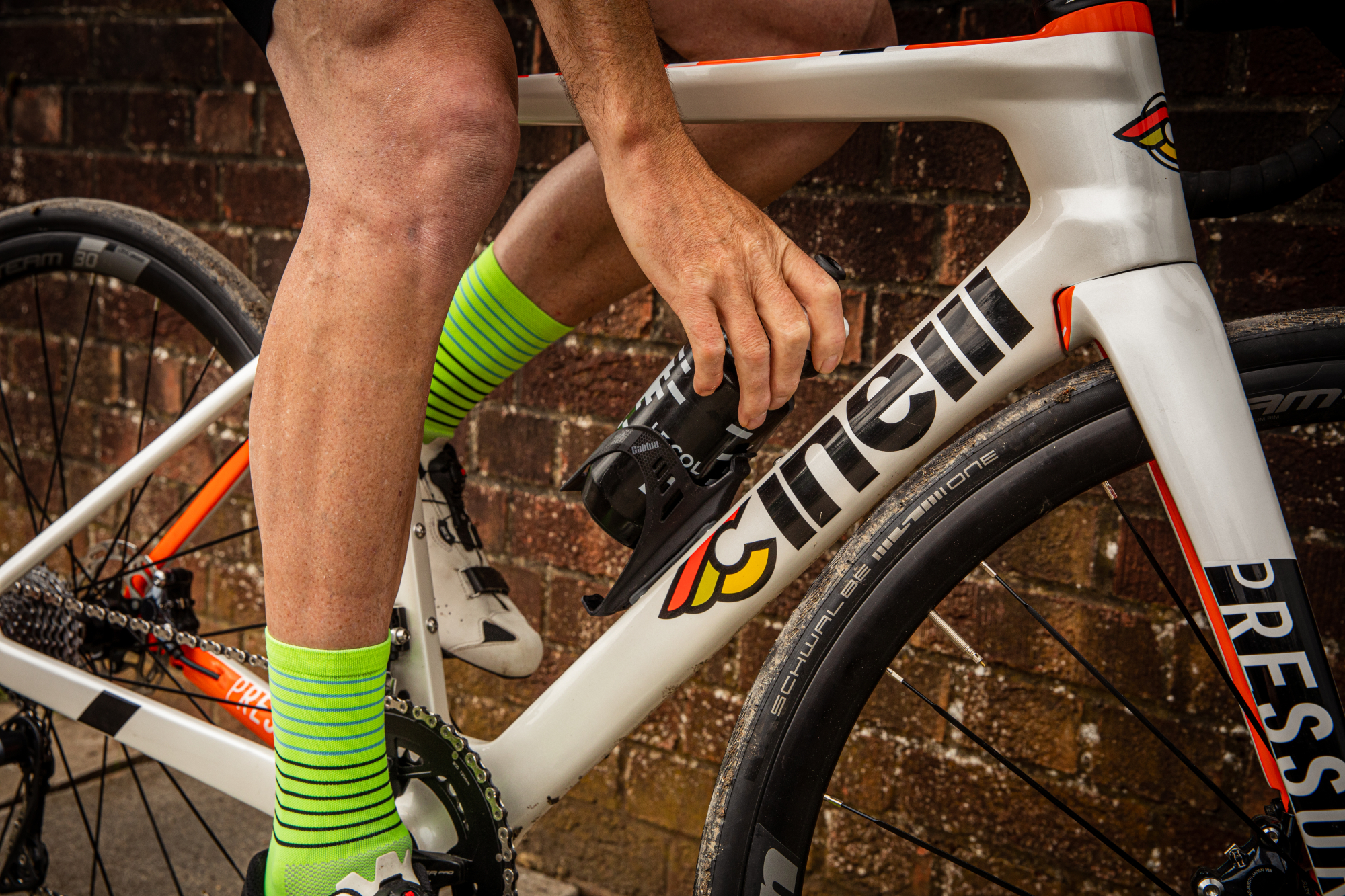
When the goal is to win the race, the research is clear – carbohydrates are king. However, in midlife you can’t fuel every training session like you did in your 20s. In most people, blood glucose control worsens as you age, and if you rely solely on ‘old-school’ strategies to fuel your training – for example, relying heavily on carbs and gels across your training week – it’s likely to compromise your health as well as your performance.
Here’s the science: When you go on a fasted bike ride, your muscle glycogen levels fall, increasing the internal cellular energy sensor AMPK which then activates the signalling molecule PGC-1 alpha. PGC-1 alpha then enters the nucleus of the muscle cell and stimulates key mitochondrial proteins, ramping up intramuscular fat usage and your ability to use fat as a fuel source. In short, this is good news for your fitness and your health. It improves your aerobic capacity and also dramatically improves insulin sensitivity, a key component of healthy ageing.
Not convinced? A recent study in recreational elite cyclists found that high blood glucose levels were more of a concern than hypoglycemia (low blood glucose). Four out of the 10 athletes in the study spent 70 per cent of the week with their blood glucose levels in the prediabetic range.
Periodising your carb intake by fuelling for the work required allows you to amplify your training gains and your health. As exercise intensity increases, so does your body’s reliance on carbs. On days with hard interval sessions, you need plentiful carbs. On days with only slower, easy riding you can reduce carb intake to improve fat-burning ability, aerobic fitness and overall health. Having a more personalised and periodised approach in midlife is key to achieving your performance and health goals. Remember, your body needs to be well fuelled to perform and adapt optimally, so do not cut back so much on carbs as to risk under-fuelling. Speak to a nutritionist if you need further guidance.
4. Refocus on recovery
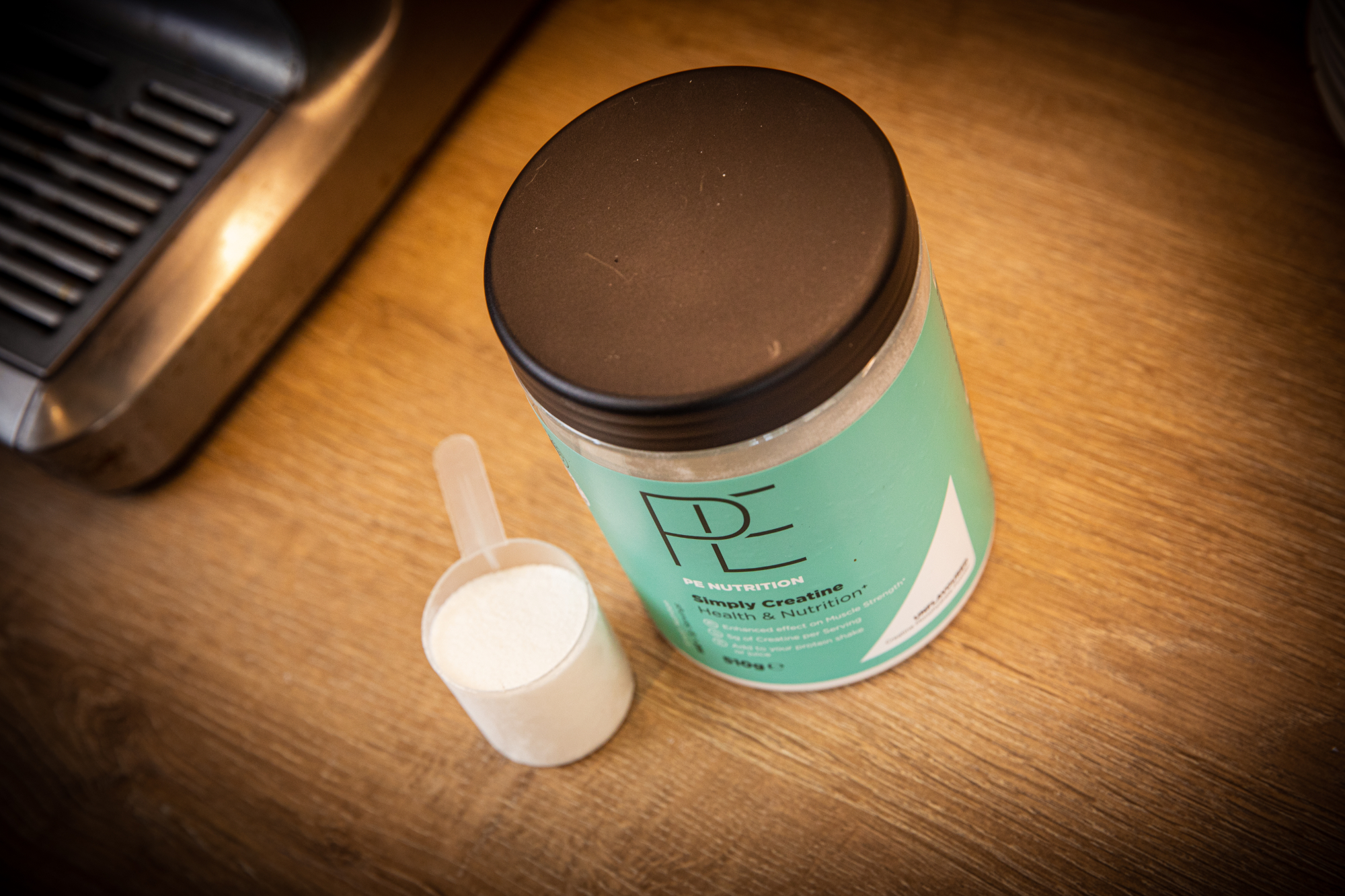
Persistent and niggling pain, stiffness and discomfort may seem to be the norm in midlife. Even if you feel good while you train, afterwards muscle soreness lingers for longer than it used to. The scientific term is exercise-induced muscle damage, characterised by symptoms that persist for between one and five days.
What happens if muscle damage is excessive after a workout? It adversely impacts how well you move, how sore you are, your range of motion and muscle capacity to produce force. Recovery nutrition fundamentals to help mitigate excessive exercise-induced muscle damage starts with consuming enough protein (see above), ensuring sufficient omega-3 intake (1,200mg of EPA + DHA), and vitamin D.
Of course, this is where, in midlife, supplements for cyclists can play a key role. Creatine is a supplement associated with building muscle, so its ability to support recovery is often overlooked. Endurance athletes too often dismiss the benefits of creatine. Multiple studies have found creatine loading in endurance athletes (20g per day for five days) effectively buffers spikes in muscle damage and inflammation after a 30km run and half-Ironman. Endurance athletes also see reductions in pro-inflammatory markers such creatine kinase (CK) and lactate dehydrogenase (LDH), as well as improvements in delayed-onset muscle soreness (DOMS). These are some big wins in midlife!
Let’s be honest, as we get older recovery time is a limiting factor in our ability to train and perform. If you’re looking for a nutritional strategy that will increase post-training muscle protein synthesis, stimulate genetic growth factors, and reduce exercise-induced muscle damage and inflammation, creatine ticks all the boxes and may well be worth a try. Aim for 3g or 5g daily, for women and men respectively, of supplemental creatine. Creatine-rich food sources include herring, beef, and other animal proteins.
5. Rein in the boozing
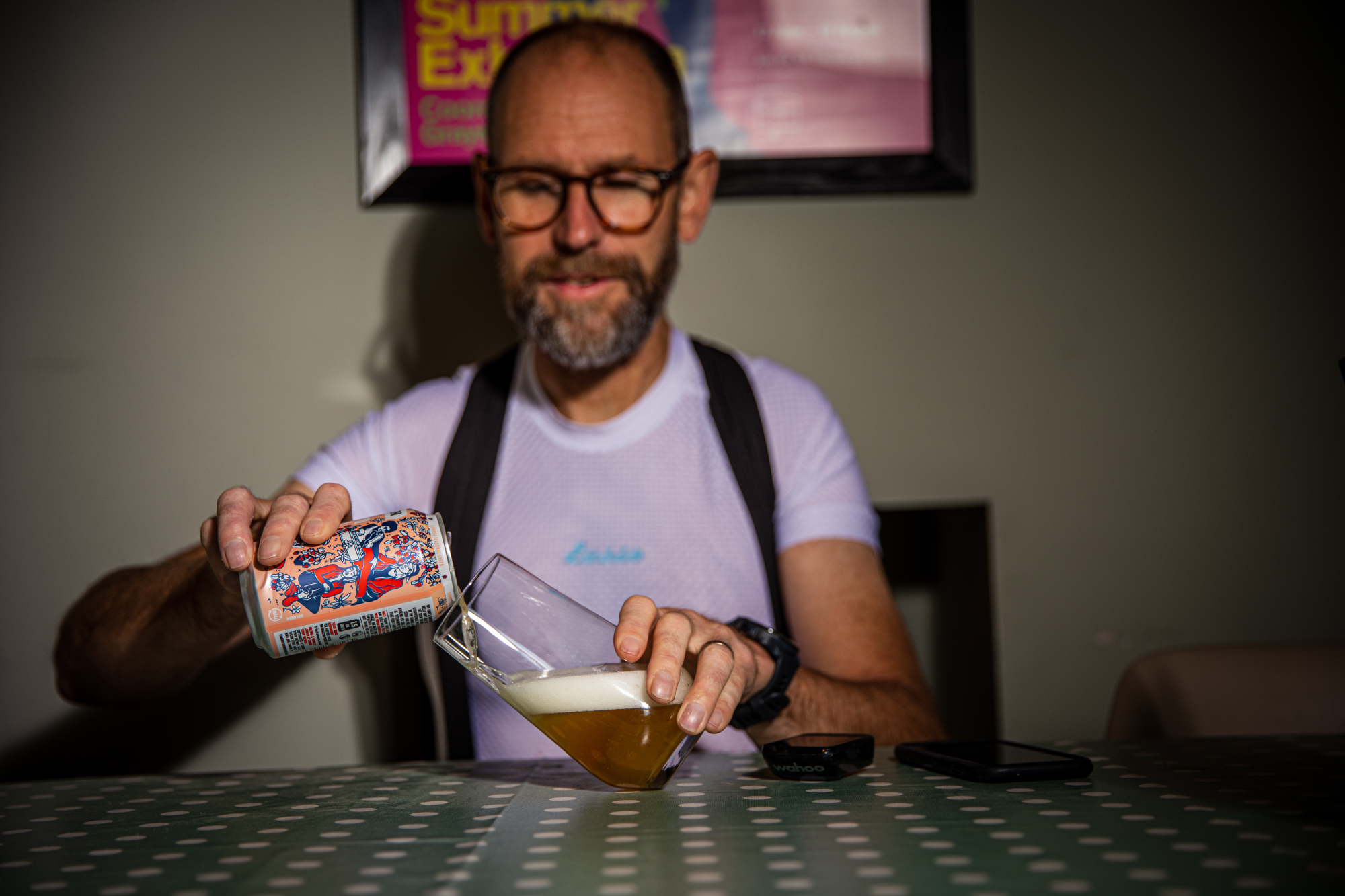
Alcohol seems to hit you harder in midlife compared to your 20s and early 30s. Is it really harder on your system as you get older, or simply a matter of changed perception? Interestingly, scientists aren’t yet exactly clear on why we get worse hangovers.
Dehydration is commonly cited as the primary cause of hangovers. As you age, the thirst mechanism becomes less sensitive and your body doesn’t conserve water quite as efficiently, which can exacerbate dehydration. This might be a factor in having worse hangovers.
That said, it’s not just dehydration but also inflammation that plays a fundamental role in hangovers. Inflammation is the body’s primary immune response to injury, infection, or trauma. Signalling molecules called cytokines are key players in this response. Studies show the massive inflammatory response after a heavy night of drinking, and the subsequent release of pro-inflammatory cytokines, might be a major culprit for all your hangover symptoms – and we know that inflammatory levels do typically rise as you age.
Finally, alcohol places a tremendous burden on your nervous system. After a single glass of wine or bottle of beer, your heart rate may increase by eight to 10bpm overnight. Indulge in half a bottle or more of wine and your heart rate may increase by 15- 25bpm, compromising your sleep quality and recovery.
How can you offset the pitfalls of alcohol while still enjoying a few drinks? Aim to avoid alcohol on four or five nights per week, and do your best to limit to two or three sociable drinks on weekends. Finally, try adding non-alcoholic beer or glasses of water between drinks to prevent excessive dehydration and accelerate recovery after enjoying a bottle with friends.
6. Develop healthy habits
The biggest barrier to people changing their diet, starting a new training regime or losing weight isn’t physical. Rather, it takes the right mindset, and patience, to succeed. Results don’t happen overnight. You need to trust the process and build the right habits to adhere to your regime in the long run.
A common myth is that you simply need more motivation or discipline to succeed. But this isn’t exactly true. Inspiration and motivation are great to get you started and help to build discipline, but what most people don’t realise is that these things are all finite resources; you don’t have an endless supply. So, how do you achieve long-term success if motivation and discipline aren’t the final answer? You need to build habits.
By using motivation and discipline, you can form habits – where you simply ‘just do it’ without having to focus or really think about it. You just eat the right breakfast, you just hit your daily steps, you just go to bed on time, because you’ve repeated the action so many times. It essentially becomes second nature.
It’s easy to tell people to develop new habits – the hard part is actually doing it. Interestingly, taking the time to know yourself a little better by identifying the things in life that are important for you (i.e. your values) is a major piece of the puzzle. Your values act as your North Star when struggling with low energy, weight gain or poor health and help to highlight when your habits are out of alignment with who you believe yourself to be.
For example, if you want to be your most productive at work but stay up late to have an extra glass of wine, you’re not orienting your behaviour toward your values. Maybe being positive and energetic with your kids is a value you hold strongly. If so, weight gain, high blood sugar levels and poor health are sabotaging your ability to show up and live up to your own standards. Take a minute to identify your values and you’ll be amazed at how much easier it becomes to develop new, enduring habits.
And sleep! Get your seven hours - minimum
Better recovery starts with sleep. Unfortunately, the average person gets only 6.5 hours of sleep nightly, failing to meet the National Sleep Foundation’s recommendations of seven to nine hours. Lack of sleep is strongly associated with increased risk of high blood pressure, heart disease, cancer, and dementia. Failing to hit your minimum of seven hours nightly also lowers your libido, reduces testosterone levels by 10-20 per cent, and ramps up your risk of low mood and anxiety. In fact, 30 per cent of the population gets less than six hours of sleep per night, further exacerbating these risk factors.
The biggest challenge, in elite sport as well as the general population, is that while people know they should get more sleep, they still struggle to actually achieve their aim. Even Olympic athletes have been shown to have poorer sleep quality and more fragmented sleep than age-and sex-matched controls. In midlife, the early mornings and late nights can become a serious problem.
Sleep expert Dr Shona Halson from the Australian Institute of Sport emphasises that sleep should be the first priority for anyone aiming to improve their recovery, and she offers these key sleep principles: “Aim to get at least seven hours nightly, power down your devices 60 minutes before bed; adopt a sleep routine to help decompress before sleep, such as reading a book, doing some light stretching or taking a hot bath.”
Midlife may be hectic, stressful and demanding, but you don’t need to overhaul your lifestyle to see major improvements in your energy levels, body weight and overall health – all of which underpin your cycling fitness. Make small changes, repeat them consistently over time, and you can ensure the challenges of middle age are seamlessly mitigated and adapted to. The key is to establish habits around a training programme that works for you, and then trust the process. Use the six rules above to get started on living your midlife to the max!
This article was originally published in the print edition of Cycling Weekly. Subscribe online and get the magazine delivered direct to your door every week.
Performance nutritionist Dr Marc Bubbs is the author of ‘Peak 40: The New Science of Mid-Life Health for a Leaner, Stronger Body and a Sharper Mind’.